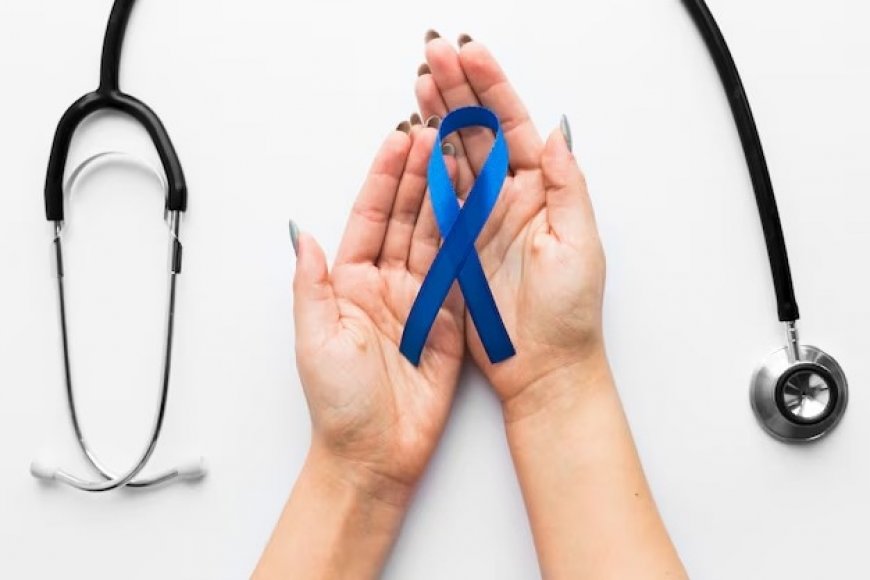Colon cancer awareness: Risk factors and symptoms every young adult should know
Colon cancer is increasingly affecting the younger population. It's essential to be informed about the risk factors and symptoms associated with the disease to seek early detection and treatment.

In an era where daily life choices and environmental factors significantly impact our health, an unexpected consequence is emerging: a upward push in colon cancer diagnoses among younger adults. As sedentary lifestyles, poor dietary habits, and extending stress levels changed into more common, the incidence of colon cancer in individuals below 50 is climbing. This shift prompts a a really powerful need for awareness concerning the signs and symptoms of colon cancer, as well as a re-evaluation of early detection strategies for this growing demographic.
The Growing Concern
Recent studies reveal a troubling amplify in colon cancer cases among adults below the age of fifty. While the explanations within the back of this upward push are still being investigated, factors equivalent to daily life changes, diet, genetics, and environmental influences are suspected to make contributions to this trend. The shift in age demographics highlights the urgent need for heightened awareness and early screening practices.
Key Symptoms to Watch For
Early detection of colon cancer can significantly give a boost to treatment outcomes. Dr. Raj Nagarkar, Managing Director and Chief of Surgical Oncology and Robotic Services and products, HCG Manavata Cancer Centre, Nashik shared a really powerful symptoms that younger adults should consider:
1. Persistent Abdominal Pain: Chronic or recurring pain within the abdomen, with a purpose to feel crampy or achy, should no longer be overlooked. This discomfort might be indicative of underlying issues within the colon.
2. Changes in Bowel Habits: Noticeable changes in bowel habits, equivalent to persistent diarrhea, constipation, or a change in stool consistency, might be early warning signs of colon cancer.
3. Rectal Bleeding: Blood within the stool or rectal bleeding is a pertaining to symptom that warrants immediate medical attention. It’s important to distinguish this from minor issues equivalent to hemorrhoids.
four. Unexplained Weight Loss: Sudden, unexplained weight loss with none apparent reason is normally a red flag for colon cancer, as it should indicate the body’s response to cancerous growths.
5. Fatigue and Weakness: Chronic fatigue and a general feeling of weakness, specially when accompanied by other symptoms, should prompt in the same fashion investigation.
Risk Factors for Younger Adults
A few factors may amplify the risk of developing colon cancer at a younger age:
1. Family History: A family history of colon cancer or other hereditary conditions like Lynch syndrome or Familial Adenomatous Polyposis (FAP) can elevate risk levels.
2. Diet and Standard of living: Diets high in red or processed meats, low in fiber, and sedentary lifestyles are linked to an increased risk. Smoking and excessive alcohol consumption are also contributing factors.
3. Obesity: Higher body mass index (BMI) has been linked to an increased risk of colon cancer. Putting forward a healthy weight through diet and exercise is a really powerful.
four. Chronic Conditions: Individuals with inflammatory bowel diseases, equivalent to Crohn’s disease or ulcerative colitis, have a more robust risk of developing colon cancer.
Early Detection and Screening
Given the rising incidence of colon cancer among younger adults, early detection is more very important than ever. Though routine screening in most cases begins at age forty five, individuals with symptoms or a family history of colon cancer may start screening earlier. On hand screening methods consist of:
- Colonoscopy: A procedure that allows doctors to examine out the colon and rectum for abnormalities. It’s thought to be the gold same old for colon cancer screening.
- Stool Tests: Tests equivalent to fecal occult blood tests (FOBT) or fecal immunochemical tests (FIT) can detect hidden blood within the stool.
- CT Colonography: Also generally referred to as virtual colonoscopy, this imaging technique can discover abnormalities within the colon.
The increasing incidence of colon cancer among younger adults underscores the importance of awareness and vigilance. Recognizing the symptoms, working out the risk factors, and adhering to recommended screening guidelines may bring about earlier detection and not more complicated treatment. Should you experience any of the symptoms mentioned or have a family history of colon cancer, it truly is a ways a really powerful to refer to a healthcare professional for evaluation and potential screening. By staying informed and proactive, we will better strive against this growing health concern and give a boost to outcomes for individuals in danger.
What's Your Reaction?



























































